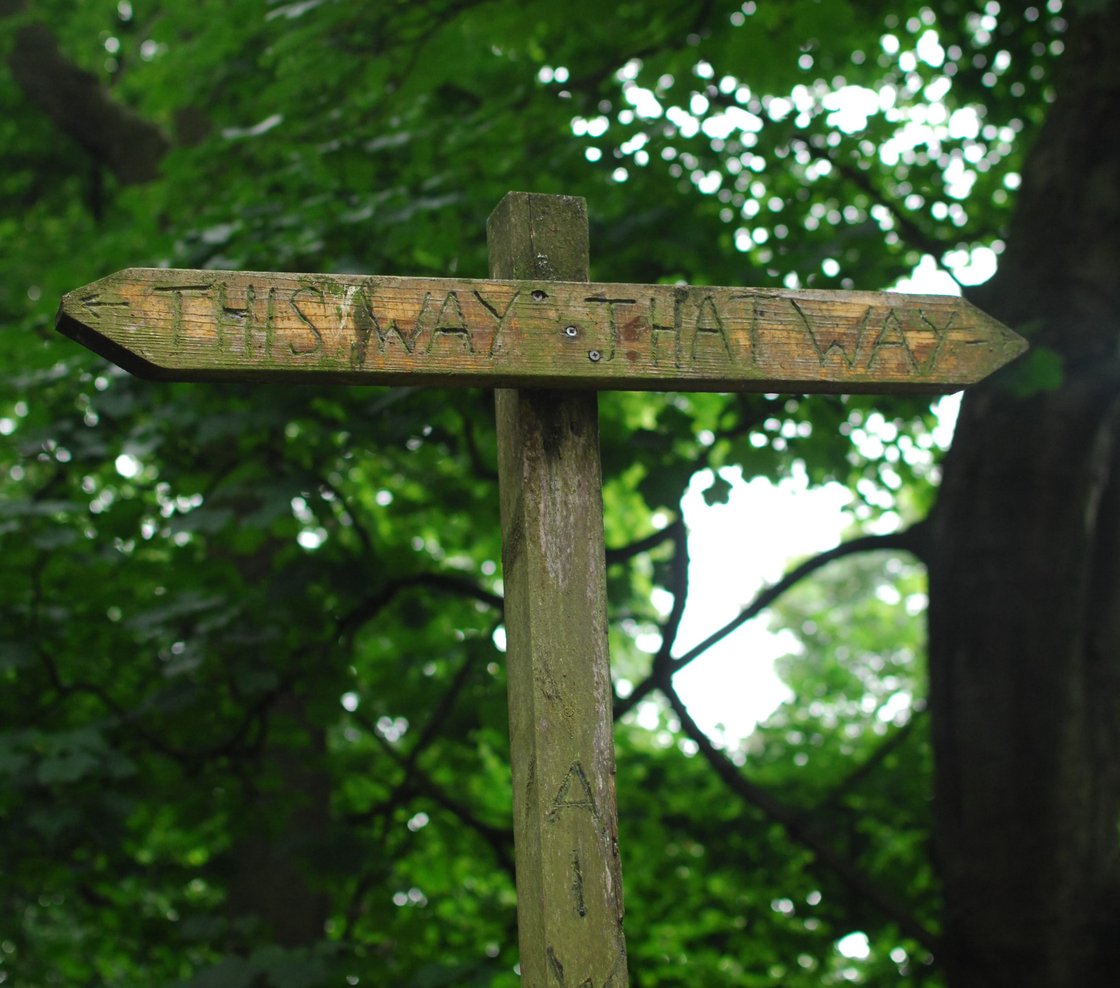e other way The sun was streaming through the windows as we finished our conversation in front lobby chairs. “Let’s meet again. It’d be great to chat about your career plans.”
I stared back in shock for a heartbeat… and then managed, “That would be great. Thank you!”
This was my second 1:1 with a marketing VP, talking about my idea to build an innovation space for the company. This was my “side project”, as my R&D day job had nothing to do with building innovation spaces. This VP had shown interest in the idea and was becoming an important and supportive stakeholder.
But the switch from that topic to me personally took me by surprise. I was just learning that the best mentors choose you vs. the other way around.
Fast forward 10 years… we’ve both left the company and gone our separate ways, and he’s still my mentor and a trusted advisor.
"A mentor is not someone who walks ahead of us and tells us how they did it. A mentor is someone who walks alongside us to guide us on what we can do."
This is not a singular story. I’ve acquired my other long-term mentors in a similar way. None of them were from a formal mentoring program, though I’ve participated in many.
These relationships have lasted years because they’re built on a genuine interest in each other. We’ve both invested in the relationship and have trust in each other. I trust they have my best intentions at heart. They trust that I will do my best with their hard-earned advice and guidance.
How do you find one of these magical relationships?
I’ve looked back at my experience and broken down the steps for you.
Here are 5 steps to finding an amazing mentor:
1/ Take a genuine interest in building the business, outside of your job description.
Mentors want to invest their time in future leaders. Leaders think big picture. This means you must think beyond just the job you’re given. Look for gaps, that if filled, can make a big difference. Be curious. Find ways to make the workplace even better. Talk with others, including managers, and identify their biggest challenges.
2/ Identify a high-impact idea you’re passionate about.
When you find something that you’re excited about, something you know will make a big difference, you will be your best. You don’t even have to have the full solution figured out. Your energy to solve this big problem will come through, which inspires others to want to help you, including potential mentors. And yes, you can lead an idea outside of your job description. Give yourself permission. It’s the only one you need.
3/ Share your idea, especially with leaders in your business.
This gives you a reason to meet with management. Specifically, reach out to people you admire and genuinely would like their feedback. Share your idea that could help build the business, which is ultimately their responsibility. Management will appreciate the help. This gives you visibility and you show up as a thought leader. Note: Not everyone is going to be as excited about your idea as you are. That’s ok – and it’s literally the nature of new ideas. But in sharing your idea, you will find others who are interested in helping you – and this includes powerful leaders in your workplace.
4/ Follow up with people with whom you felt a connection.
For those that were interested – follow up with updates and seek their feedback in your next steps. By doing this, you start to build an authentic relationship. They see how you think and act. And through your inspiring actions, some will want to see not just your idea succeed…. but you, yourself.
5/ Ask for career advice.
If an interested stakeholder doesn’t initiate a mentor relationship like mine did in the story above… just ask. You already know they are interested in your idea – which means they are also interested in you. Ideas are only as good as the people leading them. Ask if you can meet to get their thoughts about your career the next time. At this point, it is a natural transition to potential mentorship. It’s not guaranteed – but either way, they are already supporting you.
———–
When people look for mentors – I think their biggest mistake is that they are “looking for a mentor.” Like you can order one off Amazon.
But mentorship is a relationship. And mentors are people. And people are motivated by people who inspire them. The key is to show up in a way that sparks a mentor to want to mentor you.
The best part about this is… all you have to do is be you.
Connect to something that inspires you.
And you will inspire others.
“A mentor is not someone who walks ahead of us and tells us how they did it. A mentor is someone who walks alongside us to guide us on what we can do.”
– Simon Sinek
British-born American Author




